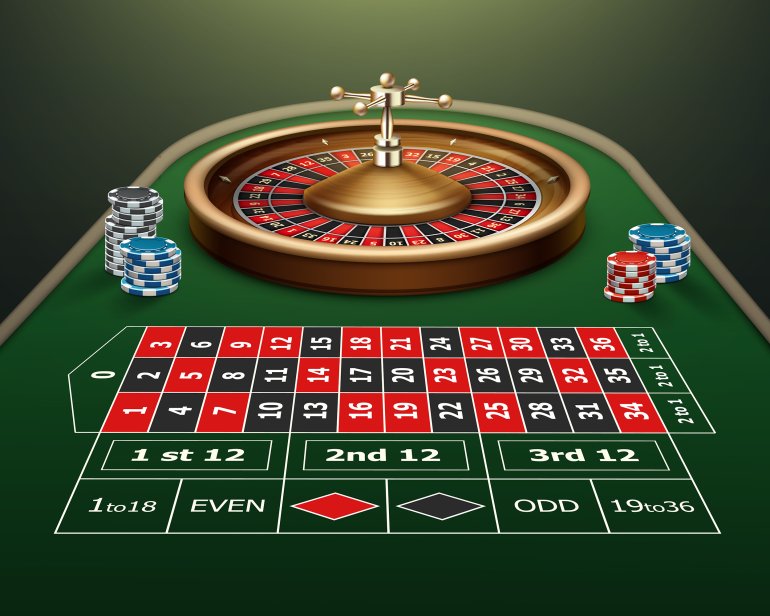
These games seem to be different, and their differences seem apparent. The gameplay and rules features suggest that they have nothing in common. However, this is not entirely true.
These two games are united by the dependence of the outcome on the laws of physics and the human factor.
Let's take a closer look at the details.
Physics Laws
A roulette dealer spins the wheel and launches the ball on the track in the opposite direction. In various casinos, the wheel can rotate in both directions or only in one direction, but the ball always moves in the opposite direction.
When it slows down, the centrifugal force is weakened, and due to gravity, it starts to descend on the rotating part of the roulette, faces reflectors, gallops across the partitions between the pockets, and stops in one of the cells. That is, everything happens by the laws of physics.
_770.jpg)
In craps, everything is even more straightforward. The player, called the "shooter," throws a pair of dice to the opposite end of the table. They fly in the air, face the table and the rim, and then stay on the table—elementary laws of physics.
Human Factor
In roulette, the human factor is revealed through the dealer's work.
- The dealers work in shifts, and each of them repeatedly launches the ball.
- Often, the job becomes so routine that they exactly repeat every spin.
- Repetitive actions result in the so-called "muscle memory."
- They apply the same force to spin the roulette wheel and launch the ball all the time.
It results in a particular trend called "the dealer's hand." Some experienced and observant players manage to catch and use it in their favor.
Muscle Memory
Craps players deliberately develop muscle memory, making thousands of training rolls and seeking control over them. To do this, they learn a particular way to put the dice together, hold them by hand and throw them correctly.
This reminds athletes training, who work out particular movements and techniques.
Consequently, the commonality between roulette and craps is the laws of physics, which allows the players to use muscle memory to affect gameplay directly. However, while using involuntary muscle memory in roulette can cost a lot for a dealer, it is a sign of excellence for a craps player. Mastering it, he significantly improves the quality of his game.
Online Casino Gameplay
This is a subjective opinion of the author, but many Casinoz readers could agree with him.
Usually, roulette and craps tables are the busiest locations of land-based casinos. They gather crowds of casino clients around. Some of them may not play but watch the game.
Cheers accompany every throw made by the shooter. A fall of the roulette ball also causes an outburst. In other words, the vibe that describes the essence of the casino prevails here.
_770.jpg)
However, both roulette and craps look less exciting at online casinos. RNG-based games can be spectacular, engaging, and exciting but cannot compete with offline versions.
Even live casinos can't match land-based houses. So, if you want maximum pleasure from roulette or craps, go to a real casino.
Summary
Of course, it's hard to draw a parallel between roulette and craps.
These are completely different games with particular features and rules.
Usually, craps fans don't like roulette, and vice versa. However, these two casino games still have something in common. We hope you loved the article.
Which of these games do you prefer? Please share your opinions and experience in the comments.





























